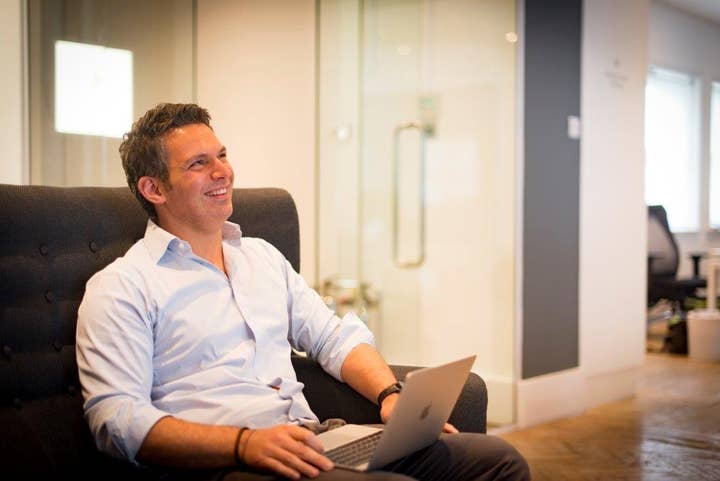PlayStack launches new marketing and user acquisition fund
The games publisher and investor sets out its vision to 'fix' the games industry
PlayStack has launched a marketing fund in its ongoing bid to "fix the games industry".
PlayIgnite is a fund that will loan game developers money to spend on user acquisition and marketing. The firm has developed a system designed to model how a game might perform if more marketing and UA capital was made available.
It's the third business unit for the PlayStack group, sitting alongside its development fund (PlayFund) and publishing services (PlayStack).
"The vision is to be able to help developers through every stage of the journey," explains Matt Frenchman, who has been hired to lead the PlayIgnite business. "PlayStack at its core is publishing. PlayFund is investing in developers who have a good concept and need investment, with PlayFund taking an equity stake. Then PlayIgnite comes further along in the journey, which is when a game is ready to launch, ready to scale and go global, but there isn't really the money to spend on user acquisition and marketing. Effectively, we are there as a funding vehicle to lend them money so they can grow."

GamesIndustry.biz last spoke to PlayStack at EGX Rezzed, and before then it was at the firm's official unveiling at Gamescom 2016. During both occasions the company would offer bullish media soundbites about wanting to "fix" the games industry.
"When we met at Rezzed, we had just secured a significant amount of money - it's basically a potentially endless facility of marketing cash," says CEO Harvey Elliott.
"So every game in the PlayStack portfolio we can scale with cash, but we can also use that externally."
He continues: "When we first met at Gamescom, we said we were going to try to fix the industry - which is an easy thing to say but not an easy thing to do. We're not trying to be big and loud about it, but we think the big obstacle for people trying to make games is getting money to make these concepts come to life. It is also the route-to-market, so how do you get your great game in front of the right people? And how do you scale it so that it is successful? That is the three bits that we do. PlayIgnite is the piece we have been working on for the longest, because it is the most complex to get out. It is unusual for people to get this sort of capital.
"If there is a game out there that could have high potential, we will work with them to scale their marketing. And we have near bottomless cash to do it"
Harvey Elliott, PlayStack
"Basically: if there is a game out there that could have high potential, we will work with them to scale their marketing and market potential. And we have near bottomless cash to do it."
The firm has hired Matt Frenchman to lead the PlayIgnite business, who is new to the industry. He joins from the world of finance, where he spent over 15 years at companies such as Credit Suisse and JP Morgan.
"I left because there was too much competition, too much regulation, nothing innovative was happening and there was nothing differentiated in the industry that was getting me excited," he explains. "When I met Harvey in April, and he ran the PlayIgnite concept by me, I hadn't heard anything like it at all. I have a finance background, and there's a strong financial element to this business, plus it was very differentiated, so I was immediately interested."
Frenchman's job is to find the developers who have games that are being held back by their user acquisition budget. He will take the data from their games, put it into the PlayIgnite system, and see what might happen if more money was made available.
"I actually met a developer before Christmas, and they've given me the data for one of their games that they're launching," Frenchman explains. "Now I am going to model it, look at the return-on-investment, look at whether it makes sense for us to lend money to them, and go back to them with a couple of scenarios. So if they spend, say, £100,000, this would be their net revenue after we've taken our fees. If that looks good to them, then we'll have a discussion about terms. They will also run their user acquisition plans by us, because we think this is a real partnership, so we want to know what they are up to with their UA. We want it to be a proper discussion, not just a loan agreement."

Elliott adds: "We are primarily looking at free-to-play experiences where there is an economy to balance and work out. The clever bit is that we have written some tech that we have been developing over the last 18 months, which analyses their analytics. It is providing a bit of machine learning to how they are scaling and growing their audiences. And then we are asking what would happen if we put this amount of money into the model, or this amount. It is money they have not yet earned, and without this money they wouldn't be able to earn it."
The lending decision is almost entirely based on data and what the firm's technology says of a game's potential. But there is a human element to the process, too.
"We are not going to override the machine," Elliott says. "We are not going to make a judgement call of putting £500,000 into a company or game if the green light doesn't come on. But if it does light up green, that doesn't mean we are going to automatically spend it either. We are going to work through the campaigns. Because to spend £5,000 successfully, that doesn't automatically mean if you then spend £500,000 you will do 100 times better. There is a lot of personal relationship development that Matt will work on, in terms of how they are going to scale it, and if they have the right mechanisms to support the game at a larger scale. What is their UA strategy? What are the platforms they are going to acquire users on and what is the entire market potential for the game? Those things the machine won't tell us."
"I don't like the word indie. I just think it's narrow and small
Harvey Elliott, PlayStack
PlayIgnite does have other lending facilities, although these aren't quite so unique. It has effectively a series of pay day loans, where it will advance developers money who are waiting for revenue from Steam or the App Store, and in the UK it can also advance studios who are seeking tax relief from HMRC.
The fund completes the PlayStack vision, although the company still has it all to prove in terms of 'fixing' the games industry. 2018 is going to be a key year. The company has grown to 30 employees (from just a handful in 2016), and expects to be around 40-strong by the summer. It's published three games so far, but by the end of this quarter it says that number will have risen to 12.
The indie publishing scene is a competitive world. The costs of development continue to rise, and the competition on Steam and the App Store is well documented. But Elliott doesn't agree that the indie scene is under threat, and is confident PlayStack will make an impact.
"I don't like the word indie," Elliott says. "I think it's narrow and small. There's of course room for indie things, but you just want teams - however big they are, two or 50 people - to have what they need to realise their potential. It doesn't really matter how big they are. I don't think we're pricing indie out of the market yet as an industry. There is room for growth. But there are a lot of scary statistics out there about how if you don't back your game, you might not get anywhere. Which is why PlayIgnite is such an important part of what we do.
"I know I said I want to fix the industry, which seems a bit over-the-top, but we do think we will make a big difference."
